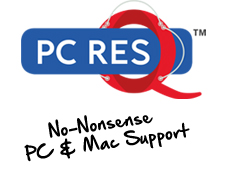171,476.
That’s how many words you’ll find in the Oxford English dictionary.
Quite astonishing if you think about it; and it’s growing daily.
Roll back to the year 2005 and if you were to lookup the word Google in the English dictionary, you’d be out of luck. Google hadn’t been heard or spoken about then.
How times have changed; I can’t remember the last time I held a dictionary in my hand as a quick Google search gives me all the information I need in seconds. Google was included in the English dictionary in 2006.
Now here are three words you might have not heard before. Phishing, SMiShing and Vishing. I promise you it’s not made up.
Let me explain each one of them in turn.
Phishing – This is the one of the three you’ll most likely to have come across. It’s when you receive a fake email from a scammer claiming to be a trusted source. The emails look genuine enough and all the logos appear OK; even when you click on a link within the email, it takes you to a website that looks like the real thing. But it’s anything but.
Making a simple error by not paying attention to what you’re clicking on could literally damage your bank account in seconds. The most common Phishing emails are bank related, and the scammers’ sole aim is for you to access your personal banking details on a bogus website. And if you end up entering your personal banking information on one of these sites, the scammers will have your details.
So what should you be looking out for? Bad spelling within emails is a tell-tale sign, but what you really need to look out for is the link within the emails and the email address of the sender. If either of these are not what you expect it to be, just delete the email right away.
SMiShing – This is very similar to Phishing, except these are fake texts on your mobile. With this type of scam, carry out the same checks as advised for Phishing emails.
Vishing – This is when a scammer calls you in person over the phone and pretends to be from a certain business or bank. A common one is to claim that they’re calling from Microsoft and say that your computer’s infected with viruses and can take remote access for a fee to rectify the issue.
For your info, no one can tell if your computer’s infected over the phone. They’d have to be in front of your machine to get this kind of information. So my best advice is to hang up right away.
Another Vishing scam is when the caller claims to be from a bank and says there’s been a security breach on your account. They’ll then ask you to confirm your bank account details to pass the security check. This should set alarm bells ringing straight away.
Even if you see a Bank’s telephone number that you recognise coming up on your phones’ display, ignore it. It’s so easy to fake a number you’re calling from these days and a genuine caller will never ask for your Bank account details when they call you.





